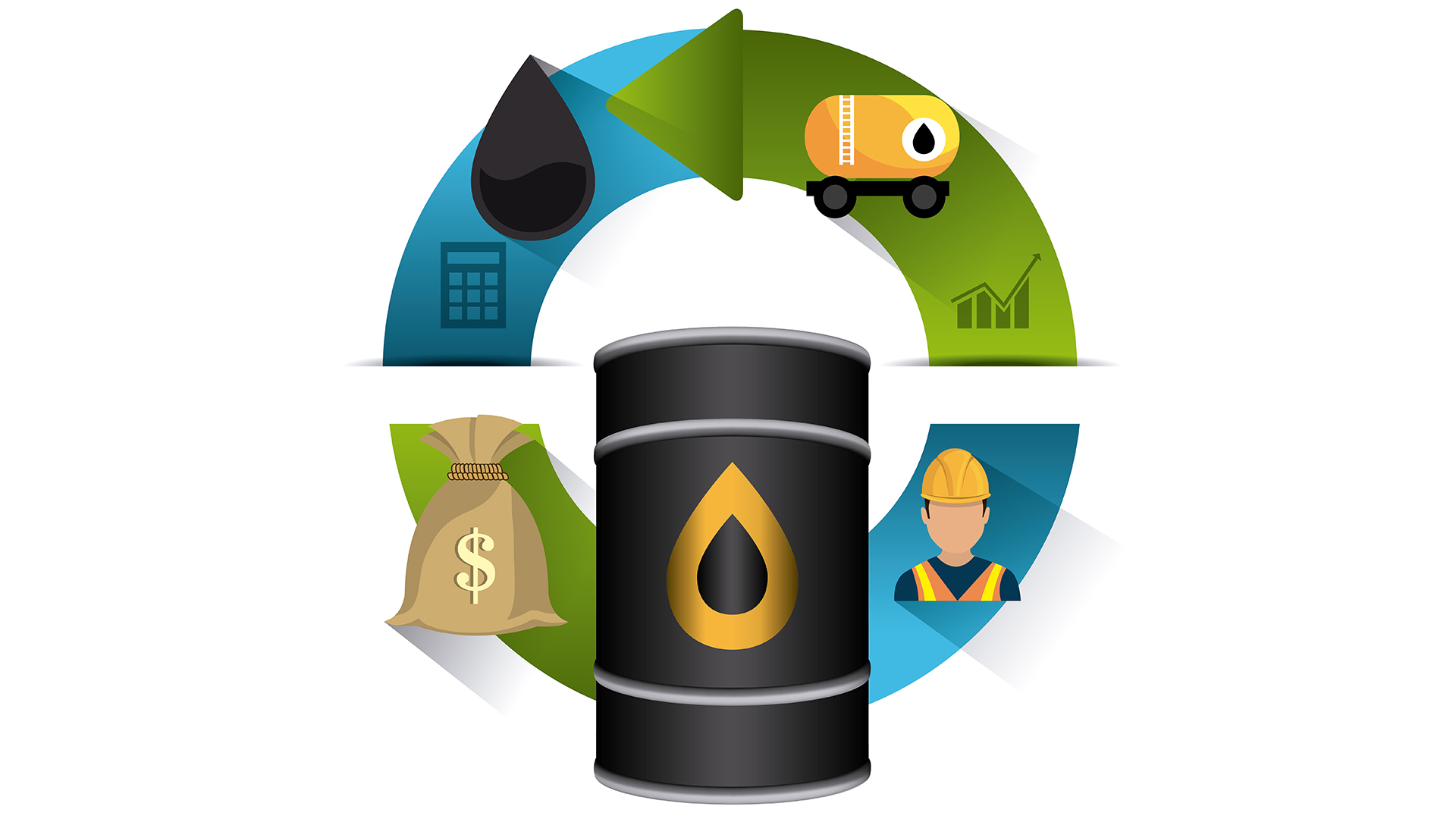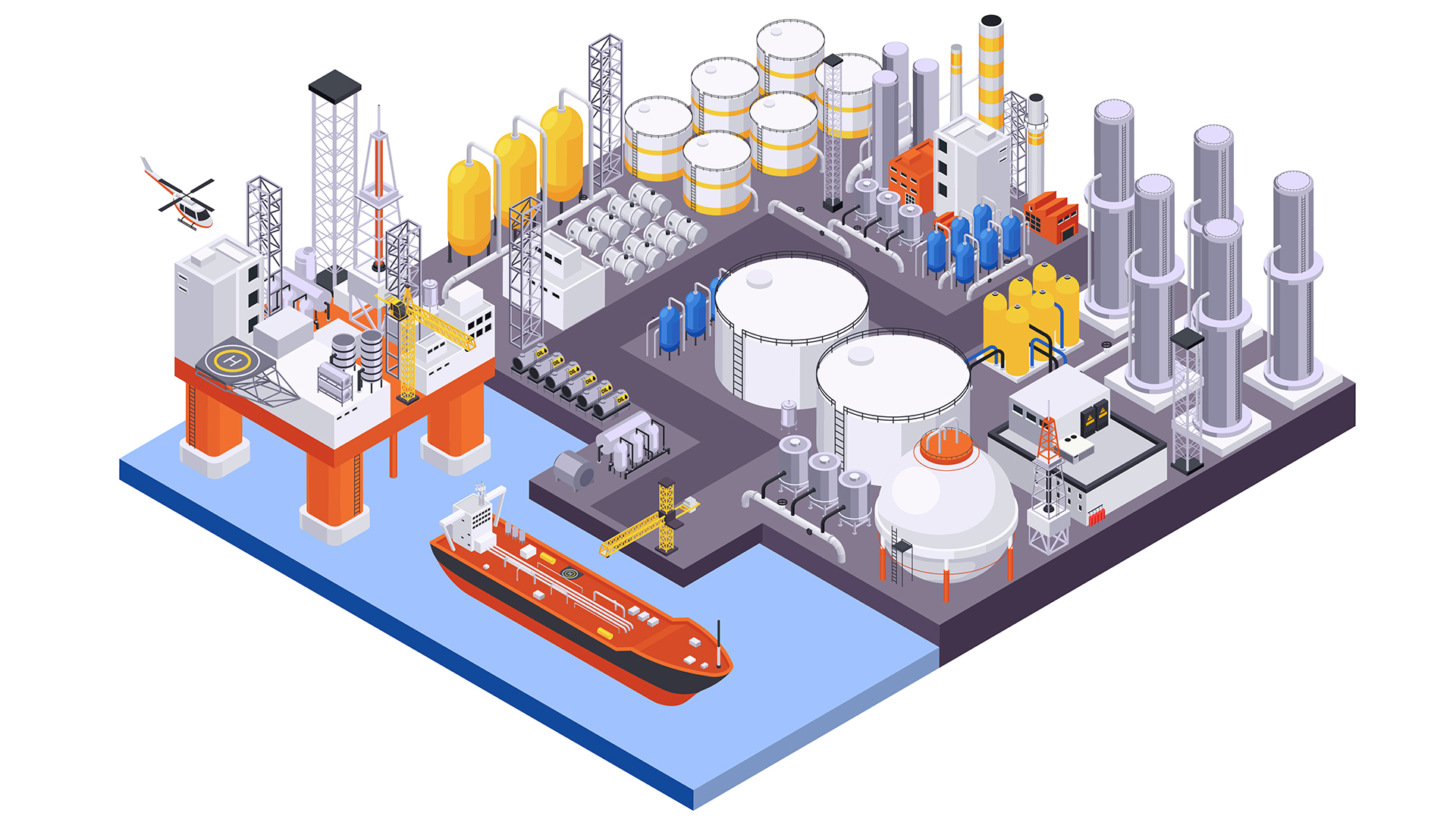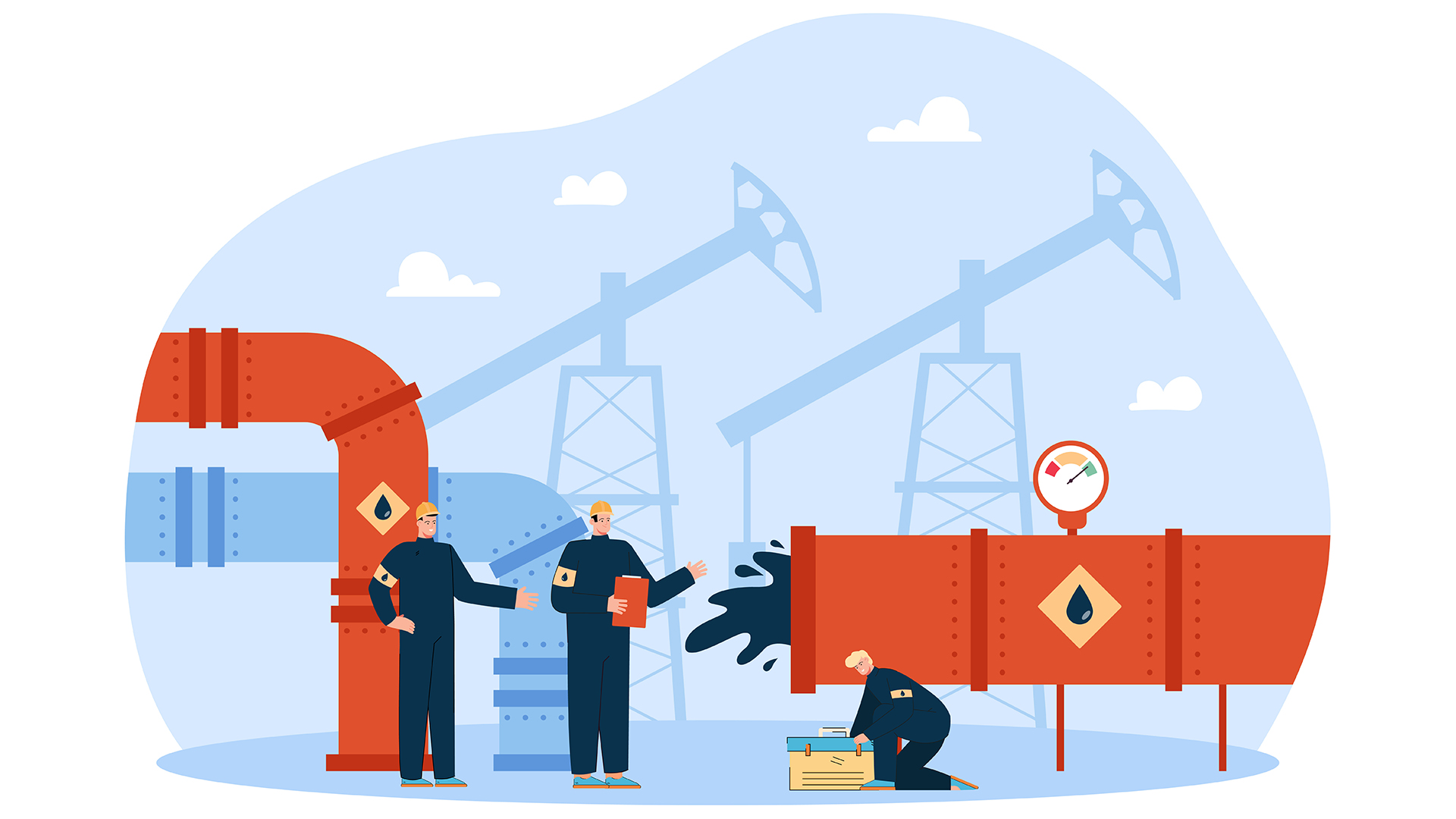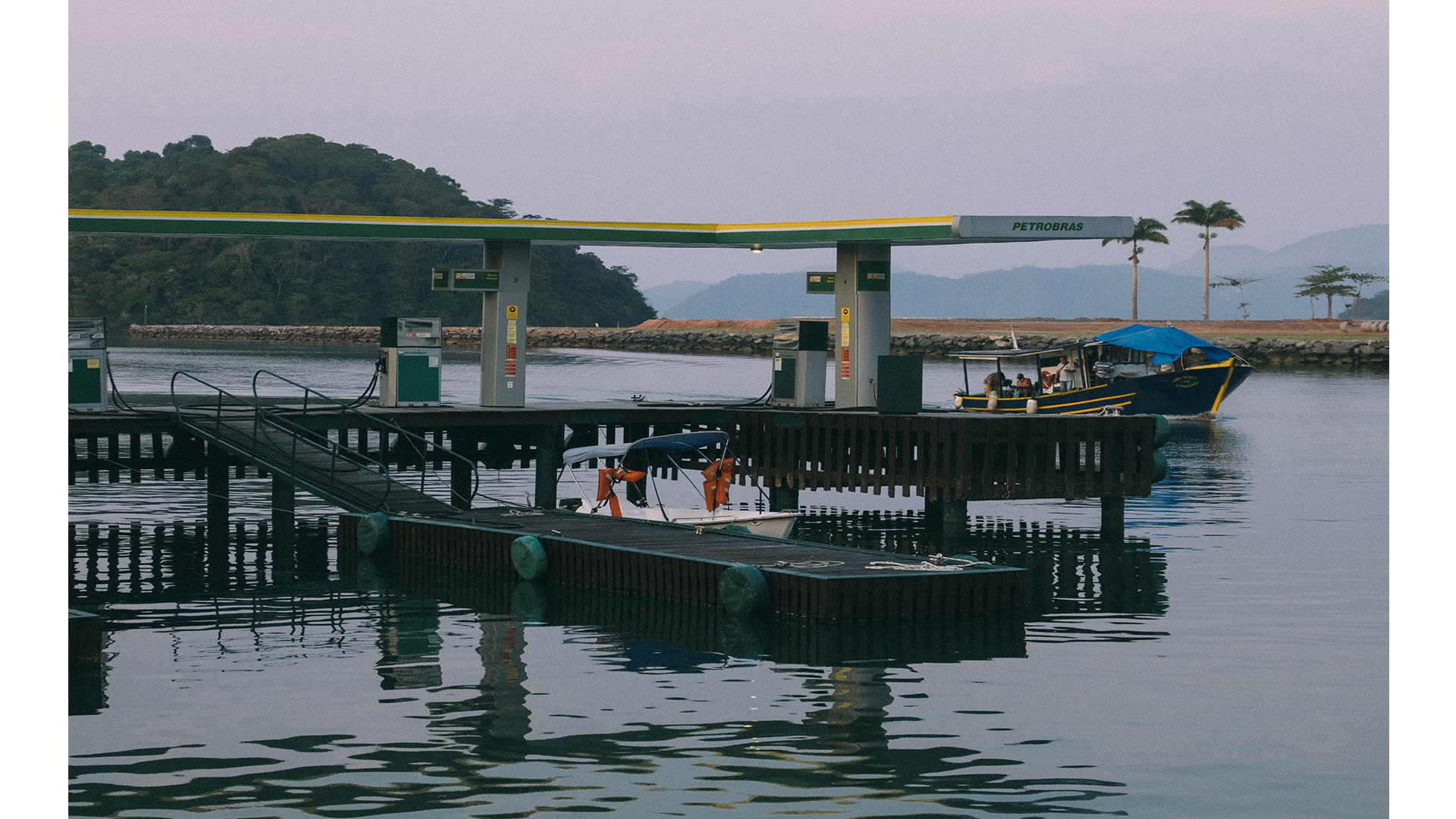
Commercialization & Monetization of Natural Gas Resources
Course overview
The reality is that hydrocarbons are and will continue to be a significant component of the global energy mix for the foreseeable future, despite the purposeful global push toward reduction in reliance on fossil fuel (vs. renewables) for the world’s energy needs. Because it is significantly more plentiful than oil and is perceived as having a lesser “evil” than crude oil, natural gas holds a special place in this energy mix. Stranded gas, which occurs when a gas buildup is situated far from existing infrastructure and markets, is a frequent problem. The difficulties most gas-rich nations face are numerous and diverse.
The UAE is experiencing a glut of gas (leading to depressed gas prices) and an inadequate infrastructure to transfer gas from the fields to markets as a result of shale gas development. The majority of developing nations with abundant hydrocarbon resources face a different kind of issue; although having vast gas reserves, they lack the infrastructure and economy needed to develop and monetize the gas in the local market. Additionally, because of previous policies that were primarily focused on exporting LNG, these gas resources are always at the mercy of market fluctuations and investment competitiveness on a global scale.
This training course is designed as a workshop. It traces the path taken by a gas molecule from the well head to the market and highlights appropriate development concepts, procedures, and technologies, as well as any obstacles that may have to be overcome. Development of stranded gas is given special consideration. For the purpose of highlighting the concepts covered in the course, case studies of a few gas development projects are reviewed. At the conclusion, participants should have a greater understanding of the problems related to gas production, commercialization, and monetization.
Introduction
Participants are given a foundation for the “Commercialization and Monetization of Natural Gas Resources” certification course during the introduction, which also discusses the significance of comprehending how natural gas is commercialized and monetized in the current energy landscape.
The “Commercialization and Monetization of Natural Gas Resources” certification course is a pleasure to have you here. The purpose of this program is to give participants a thorough understanding of the methods, approaches, and factors that go into the commercial aspects of the natural gas sector.
We are eager to travel with you on this adventure as we investigate the complex world of natural gas commercialization and monetization. You will graduate from this course with the expertise required to succeed in this fast-paced field.
We are The Training Bee, a global training and education firm providing services in many countries. We are specialized in capacity building and talent development solutions for individuals and organizations, with our highly customized programs and training sessions.
Learning Objectives
Upon completing Commercialization & Monetization of Natural Gas Resources, participants will be able to:
- Overview of Natural Gas and Its Function in Energy Exploration, Production, and Reserves Estimation
- Pricing and market fundamentals for the infrastructure supporting transportation and distribution
- Regulatory and Legal Framework
- Risk management and contractual agreements
- Trade and Export Policies for LNG
- Considerations for Sustainability and the Environment
- Industry Ethics and Social Responsibilities Emerging Technologies and Future Prospects
Our Unique Training Methodology
This interactive course comprises the following training methods:
- Journaling – This consists of setting a timer and letting your thoughts flow, unedited and unscripted recording events, ideas, and thoughts over a while, related to the topic.
- Social learning – Information and expertise exchanged amongst peers via computer-based technologies and interactive conversations including Blogging, instant messaging, and forums for debate in groups.
- Project-based learning
- Mind mapping and brainstorming – A session will be carried out between participants to uncover unique ideas, thoughts, and opinions having a quality discussion.
- Interactive sessions – The course will use informative lectures to introduce key concepts and theories related to the topic.
- Presentations – Participants will be presented with multimedia tools such as videos and graphics to enhance learning. These will be delivered engagingly and interactively.
Training Medium
This Commercialization & Monetization of Natural Gas Resources training is designed in a way that it can be delivered face-to-face and virtually.
Course Duration
This training is versatile in its delivery. The training can be delivered as a full-fledged 40-hour training program or a 15- hours crash course covering 5 hours of content each day over 3 days
Pre-course Assessment
Before you enroll in this course all we wanted to know is your exact mindset and your way of thinking.
For that, we have designed this questionnaire attached below.
- Give a brief overview of your education and work history in the natural gas sector, as well as any current or previous roles and responsibilities.
- What exactly do you mean when you say “commercialization of natural gas resources”? Give an explanation of this notion and how you comprehend it.
- Do you have knowledge of various techniques and strategies for monetizing natural gas resources?
- How well do you comprehend the legal and regulatory frameworks that control the natural gas sector?
- What do you think are the main market dynamics and variables that affect natural gas pricing and trading?
- Have you ever managed or participated in the negotiation of natural gas contracts? If so, kindly share your experience.
- Are you familiar with LNG contracts, shipping, liquefaction facilities, and other aspects of LNG trading?
Course Modules
This Commercialization & Monetization of Natural Gas Resources covers the following topics for understanding the essentials of the Agile Workplace:
Module 1 – Introduction to the Commercialization of Natural Gas
- a description of the natural gas sector
- important parties and stakeholders
- historical perspective on the commercialization of natural gas
- Industry trends and difficulties
Module 2 – Production and supply of natural gas
- natural gas exploration and production
- Infrastructure for distribution and transportation
- Pipelines, LNG terminals, and storage facilities: their functions
- Dynamics of global supply chains
Module 3 – Resources and Reserves for Natural Gas
- Reserves of natural gas are categorized
- Reporting on reserves and estimation techniques
- confirmed, likely, and potential reserves
- Strategies for reserve replacement and exploration
Module 4 – Pricing and Basic Market Principles
- Natural gas price influencing factors
- Marketplaces and trading centers for natural gas
- Risk management and price volatility
- regional and international pricing trends
Module 5 – Framework for Regulation and Compliance
- regulatory organizations
- contractual and statutory foundations
- rules for the environment and emissions trading
- Requirements for compliance and reporting
Module 6 – Commercialization Plans and Agreements
- Contracts for the sale of natural gas, transportation, and LNG, for example
- Negotiating and constructing contracts
- Contract length: long-term vs. short-term
- Pricing and risk-sharing arrangements
Module 7 – Trade and Export of LNG
- Liquefied natural gas (LNG) value chain
- Facilities for liquefaction and LNG terminals
- LNG agreements and pricing structures
- Logistics for LNG shipping
Module 8 – Technologies for Monetizing Natural Gas
- Overview of technologies for monetizing natural gas, such as gas-to-liquids and gas-to-power.
- Choosing a monetization strategy.
- Financial planning and economic viability
Module 9 – Considerations for Sustainability and the Environment
- Environmental effects of natural gas consumption and production
- Environmental, social, and governance (ESG) considerations
- Sustainability and ethical procurement
- Carbon offsetting and carbon capture and utilization (CCU)
Module 10 – Emerging Technologies and Trends
- Technology’s role in the commercialization of natural gas
- Exploration and production innovations
- Industry digitalization and data analytics
- Perspective for the future and probable hiccups
Module 11 – Normative and Social Responsibilities
- Integrity in the trading and commercialization of natural gas
- societal and neighborhood factors
- CSR, or corporate social responsibility
- Communication and reporting on sustainability
Module 12 – Risk minimization and financial evaluation
- Risk evaluation and mitigation tactics
- Modeling financial data and assessing projects
- Capital allocation and investment choices
- Project funding and due diligence
Module 13 – Foreign Trade and World Markets
- Dynamics of global natural gas commerce
- Gas market effects of geopolitics
- Increasing market diversity and global politics
- Strategies for export and import
Module 14 – Natural Gas Future
- Natural gas’s role in the energy transition
- Low-carbon and renewable natural gas
- converting to a hydrogen-based economy
- Prospects for the natural gas industry in the future
Post-course Assessment
Participants need to complete an assessment post-course completion so our mentors will get to know their understanding of the course. A mentor will also have interrogative conversations with participants and provide valuable feedback.
- Describe the significance of natural gas as a source of energy and its place in the world’s energy system.
- Identify the essential parts of the natural gas supply chain, starting with production and ending with distribution.
- Describe the market dynamics and factors that affect natural gas pricing.
- Describe the primary methods and techniques employed in the commercialization of natural gas resources. Give illustrations of each.
- How might supply chain optimization help with the successful commercialization of natural gas?
- Describe the main methods of monetization employed in the natural gas sector, including pricing structures and investment choices.
- Describe the significance of contracts in the monetization of natural gas. What are a few essential components of successful natural gas contracts?
Lessons Learned
Participants learn how a variety of interconnected elements, including as market dynamics, regulatory settings, pricing mechanisms, and ethical issues, have an impact on the commercialization and monetization of natural gas. The fact that these components must be taken into account as a part of a bigger, integrated plan is a crucial lesson.
The importance of strategic decision-making in natural gas venture success is emphasized throughout the course. Participants discover that efficient tactics cover risk management, sustainability, and compliance in addition to contract negotiations and price optimization.
The growing significance of environmental responsibility and sustainability in the natural gas sector is a key lesson. Participants acknowledge that ethically good environmental practices are crucial for preserving the reputation of the industry and its long-term success.







